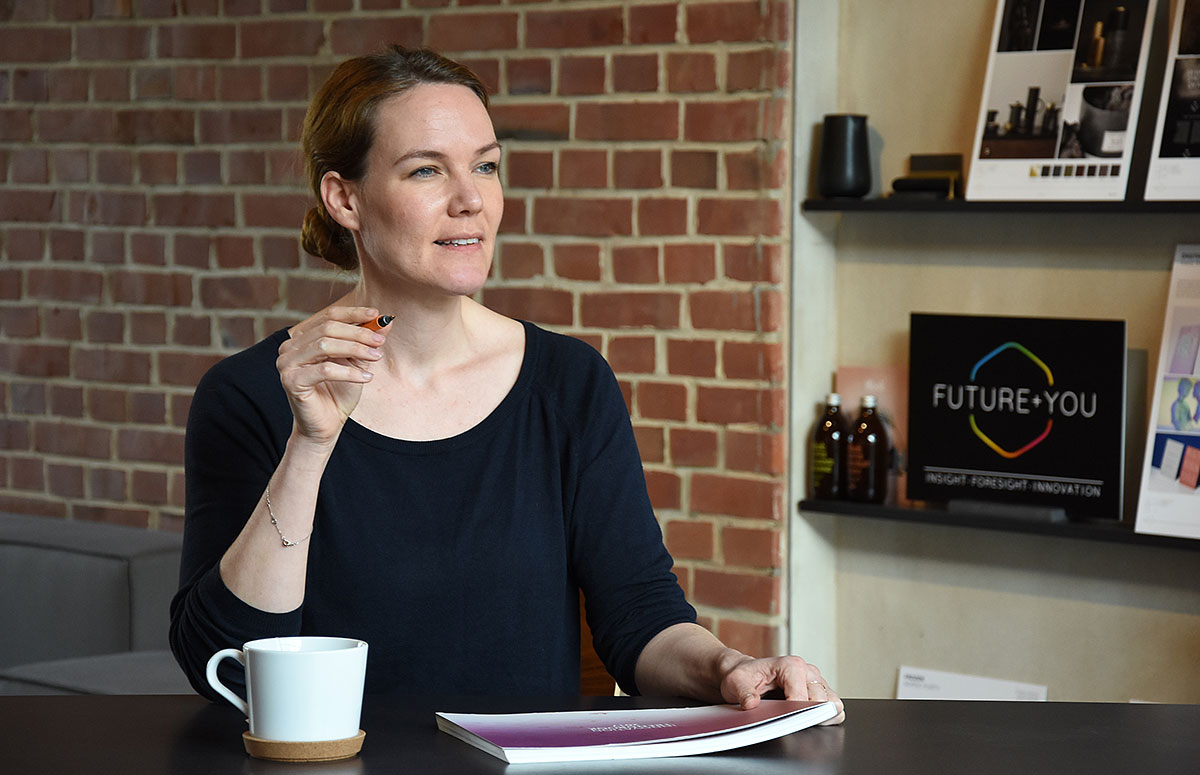How will we live in the future?
Our idea of the perfect way of life is undergoing a transformation, with hot topics sometimes in conflict with one another. We’re concerned about our climate, but we don’t want to do without innovative materials and smart technology. Living space is becoming more and more expensive, and we’re looking for more living comfort and solutions for increasingly small homes that still give us the sense of living in spacious loft conversions. In other words, future living will be natural, smart and efficient.

A new awareness of the environment, advance of smart home developments and a shortage of living space will all have an influence on our future way of life. Photo: AdobeStock, areebarbar
More natural living

More and more natural materials are being used in the home. Photo: AdobeStock, Photographee.eu
Smarter living

Smart applications are becoming ever more diverse. Photo: AdobeStock, slavun
Can we use an app to grow herbs? Can computers nurture plants in order to improve the air quality in our homes? Does the climate have an impact on building services? Does a smart control system switch off the lights and the coffee machine when you leave the house? Smart applications are becoming ever more diverse, reliable and easy to use, and they can be tailored with growing accuracy to the specific needs of residents. As a result, smart technologies are increasingly playing a key role in our home architecture. Whether in the computer-controlled optimisation of indoor air quality, the innovative control and operation of shower toilets or the anticipatory and energy-optimised management of room temperature – smart technology is becoming more and more integrated into the way we live. A home ventilation system removes stale air before residents come home; in summer, automatic shading, air conditioning or cooling systems integrated in walls and ceilings work in conjunction with a heat pump to ensure the ideal indoor climate. And in the kitchen, too, smart technology is optimising user workflows and processes. Intelligent appliances are operated via an app or voice control, recipes are projected onto the worktop from the Internet and food is carefully prepared to perfection. Beautiful new world or (climate) economic necessity? Probably a bit of both!
More efficient living

Smaller homes will continue to drive up the demand for space-saving furniture. Photo: Müller Möbelwerkstätten
Rising rents and smaller homes will continue to drive up the demand for space-saving furniture. The first wave of the trend for tidy, minimalist aesthetics has already reached us from the USA and Asia – renouncing consumption and restricting ourselves to the essential things in life are strategies for creating order in the home. And more and more people are finding this approach extremely beneficial. Order is trendy, so anything else is “uncool”. Quality over quantity could therefore be the perfect home furnishing philosophy for many people, especially as it’s also consistent with the desire for “natural living”. For this reason, imm cologne 2020 will showcase solutions including both affordable system furniture and compact individual items, which are scalable (adaptable to different room dimensions), variable (pull-out technology, etc.) and versatile. In view of the wide range of applications for such furniture systems – from mini apartments to loft conversions – suppliers are placing great value on modern aesthetics in urban living style that are far removed from the disordered atmosphere of a teenager’s bedroom.




